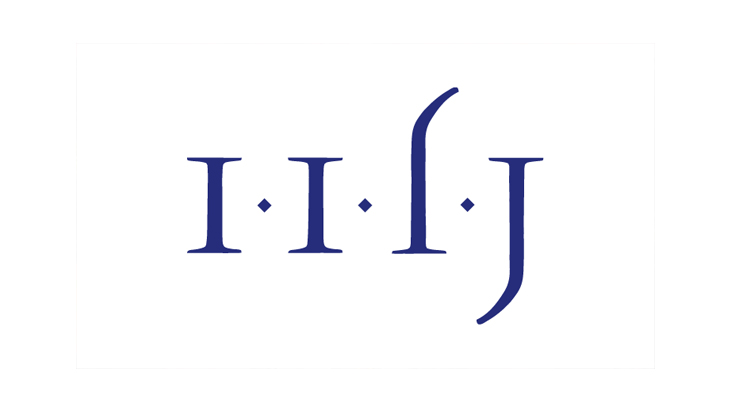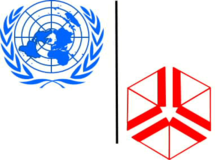On November 17-18, 2014, the IILJ at NYU School of Law and David M. Malone, Rector of the United Nations University, Under-Secretary-General of the United Nations, convened a conference to examine how power-knowledge dynamics within global institutional governance are being transformed by new practices and cultures of measurement, data, indicators, and other quantified information. The central focus was on governance of illicit activity (corruption, money laundering, human trafficking, illegal logging, narcotics, dangerous fake pharmaceuticals, etc.).
Illicit activities merit particular consideration not only because of the importance of the issues at stake, but because of some unique features requiring special attention. Data is hard to collect and hence hard to evaluate. Many participants naturally maximize secrecy, evading tracking and monitoring and systematic study. Those who can quantify some aspects of illicit activity may conceal the resulting data; law enforcement officials keep some information secret for investigative and enforcement purposes, groups assisting victims may need to keep the identity (or even the existence) of the victims secret for protection; one institution may mistrust another. Yet, even in contexts where information is impervious to public scrutiny, the power-knowledge effects of (accurate or inaccurate) data may be great. Examining how the data is produced, analyzed, and used and how data producers, users, and other actors interact in the context of monitoring and enforcing illegal and illicit activities opens up new perspectives on the roles of quantification and of multi-institutional dynamics in governance. Bringing together experts on these issues and experts on several different kinds of illicit activity allows for comparative study of governance, data, and measurement in domains that are characterized by different degrees of transparency and different institutional dynamics. Policy and practical innovation, and cross-issue linkage, may also be facilitated.
Day 1
Opening remarks: What Makes Illicit Activities Significant and Unique?
- Benedict Kingsbury [NYU and University of Utah]
- Sally Merry [NYU]
- Kevin Davis [NYU]
Keynote: Morten Jerven [Simon Fraser University]: Data, Measurement, and Development
Roundtable:Data, Measurement, and Development: Insights for the Governance of Illicit Activities
- Chair: David Malone [Rector, United Nations University]
- Alex Cobham [Center for Global Development] (paper with Gamal Ibrahim): Illicit Financial Flows and Hidden Income Inequality
- Jason Sharman [Griffith University]
- Morten Jerven [Simon Fraser University]
- Kevin Davis [NYU]
Video for first two panels:
Measuring the Scale of Illicit Activities and Efforts to Combat Them: The Case of Money Laundering
- Chair: Benedict Kingsbury [NYU and University of Utah]
- Michael Levi [Cardiff University] and Terence Halliday [American Bar Foundation]: Governance of the Global Dirty Money Trail: Methods and Flaws in Regulation of Anti-Money Laundering
- Shima Baradaran [University of Utah]: Field Experiments and Surveys Measuring the Ease of Incorporating Shell Companies
- Commentator: Josh Blank [NYU]
Video for panel:
Measurement of Illicit Activities: Approaches and Techniques
- Chair: Kevin Davis [NYU]
- Monti Datta [University of Richmond]: Estimating Global Slavery
- Elizabeth Garland, Erin Klett, Justine Shakespeare [Verité]: Operationalizing the UN-ILO Forced Labor Indicator Framework
- Ernesto Savona [Transcrime]: Measuring the Scale and Impacts of Illicit Trade
- Commentator: Sally Merry [NYU]
Video for panel:
Roundtable: New Technologies of Measurement
- Chair: Katherine Strandburg [NYU]
- Mark Latonero [University of Southern California and the Data & Society Research Institute]: Data-Driven Approaches to Fight Human Trafficking Online
- Jennifer Musto [Wellesley College]: Disrupting Trafficking with Big Data, Algorithms, and Mobile Technology
- Fleur Johns: [University of New South Wales]: Global Governance through the Pairing of List and Algorithm
Commentary by
- Karen Bravo [Indiana University] on trafficking aspects
- Zach Goldman [NYU] on national security aspects
Day 2
Politics of Measurement
- Chair: Tess Graham [University of Utah]
- Aziza Ahmed [Northeastern University]: Constructing Indicators on Sex Work in Global Health Governance
- Bridget Kustin [Johns Hopkins University]: The Politics of Counting Migrants (or Refugees) in Bangladesh
- Dita Vogel [University of Bremen]: The Persistence of Misleading Estimates of Populations Involved in Illicit Activities
- Isobel Roele [Queen Mary University of London]: Governing Transnational Organized Crime through Disciplinary Power
- Commentator: Meg Satterthwaite [NYU]
Video for panel:
Measurement and Global Governance – part one
- Chair: Sally Merry [NYU]
- Beth Simmons [Harvard University] and Judith Kelley [Duke University]: Politics by Number: Indicators as Social Pressure in International Relations
- Mary Fan [University of Washington]: Private Data, Public Safety: Disclosure from a Population Health Perspective
- Commentator: David Nelken [King’s College London]
Video for panel:
Measurement and Global Governance – part two
- Chair: Richard Ashby Wilson [Institute of Advanced Study, Princeton]
- Ana Peyro Llopis [University Complutense of Madrid]: Security Council Governance and Illicit Activities as Threats to Peace and Security
- Deval Desai [School of Oriental and African Studies, University of London] and Mareike Schomerus [London School of Economics and Political Science]: Boundaries between Research, Policy, and Advocacy in Indicators of Security and Justice
- Commentator: Sebastian von Einsiedel [United Nations University]
Video for panel:



